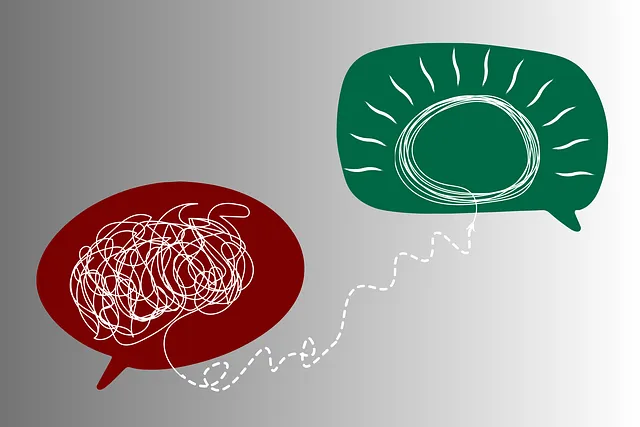The Northglenn Kaiser Permanente mental health center prioritizes staff well-being through open communication, tailored support programs, and emphasis on self-care. They offer initiatives like Mental Health Policy Analysis, Cultural Competency Training, mandatory journaling, and guidance sessions to prevent burnout, enhance emotional regulation, and promote resilience among healthcare providers. These strategies ensure a healthy, engaged workforce capable of delivering exceptional patient care while maintaining their own well-being.
Healthcare provider burnout is a growing concern, especially in high-pressure settings like the Northglenn Kaiser Permanente Mental Health Center. This article explores effective prevention strategies to combat this issue. We’ll delve into recognizing early signs of burnout, emphasizing self-care practices essential for well-being. Additionally, we’ll highlight how the Northglenn Kaiser Permanente center has implemented supportive environmental changes to foster a healthier work-life balance. By adopting these strategies, healthcare providers can enhance their resilience and provide better care.
- Recognizing Burnout Signs at Northglenn Kaiser Permanente Mental Health Center
- Implementing Self-Care Practices for Healthcare Providers
- Building a Supportive Environment: Strategies for Prevention at the Northglenn Kaiser Permanente Mental Health Center
Recognizing Burnout Signs at Northglenn Kaiser Permanente Mental Health Center

At Northglenn Kaiser Permanente Mental Health Center, recognizing burnout signs is a critical aspect of maintaining a healthy work environment. The center prioritizes employee well-being by fostering a culture that encourages open communication about mental health concerns. Through regular staff meetings and one-on-one check-ins, professionals are prompted to share their experiences and express any signs of stress or exhaustion. This proactive approach allows for early intervention, ensuring that burnout doesn’t escalate into more severe issues.
Additionally, Northglenn Kaiser Permanente offers tailored support programs, including Mental Health Policy Analysis and Advocacy, aimed at empowering healthcare providers with the knowledge and tools to manage their emotional regulation. These initiatives are bolstered by comprehensive Healthcare Provider Cultural Competency Training sessions, which address the unique challenges faced in providing mental health services. By implementing these strategies, the center aims to create a resilient workforce capable of delivering exceptional patient care while maintaining their own well-being.
Implementing Self-Care Practices for Healthcare Providers

In the demanding landscape of healthcare, where long hours and high-stress environments are commonplace, self-care practices are essential for maintaining the well-being of providers. The Northglenn Kaiser Permanente mental health center emphasizes this as a cornerstone in their burnout prevention strategies. By prioritizing personal care, healthcare professionals can cultivate resilience against the challenges they face daily. This includes adopting healthy habits such as regular exercise, balanced nutrition, and sufficient sleep to sustain both physical and mental health.
Additionally, the center promotes coping skills development and inner strength development as vital components of self-care. These strategies empower providers to manage stress effectively, enhance emotional regulation, and foster a sense of balance in their personal and professional lives. Through tailored programs and resources, Northglenn Kaiser Permanente supports healthcare providers in preventing depression and cultivating sustainable well-being, ultimately enabling them to deliver optimal patient care.
Building a Supportive Environment: Strategies for Prevention at the Northglenn Kaiser Permanente Mental Health Center

At the Northglenn Kaiser Permanente Mental Health Center, creating a supportive environment is recognized as a cornerstone in preventing burnout among healthcare providers. The center has implemented several strategies inspired by best practices and employee feedback to cultivate a culture of resilience and well-being. One key initiative involves mandatory mental wellness journaling exercises, where staff are encouraged to reflect on their experiences, emotions, and personal growth. This practice not only provides an outlet for stress relief but also promotes self-awareness, a vital aspect of depression prevention.
Additionally, the center fosters open communication by offering regular guidance sessions focused on burnout prevention. These sessions aim to equip healthcare providers with coping mechanisms and resilience strategies tailored to their unique challenges. By prioritizing mental wellness through journaling and fostering an environment supportive of open dialogue, Northglenn Kaiser Permanente Mental Health Center demonstrates a holistic approach to safeguarding its workforce against burnout, ultimately ensuring better patient care.
The Northglenn Kaiser Permanente mental health center has implemented successful strategies to combat healthcare provider burnout, including recognizing early signs, encouraging self-care practices, and fostering a supportive work environment. These initiatives not only benefit the well-being of providers but also enhance patient care and satisfaction at the center. By prioritizing prevention, the Northglenn Kaiser Permanente mental health center serves as a model for other facilities seeking to create sustainable and thriving professional communities.






